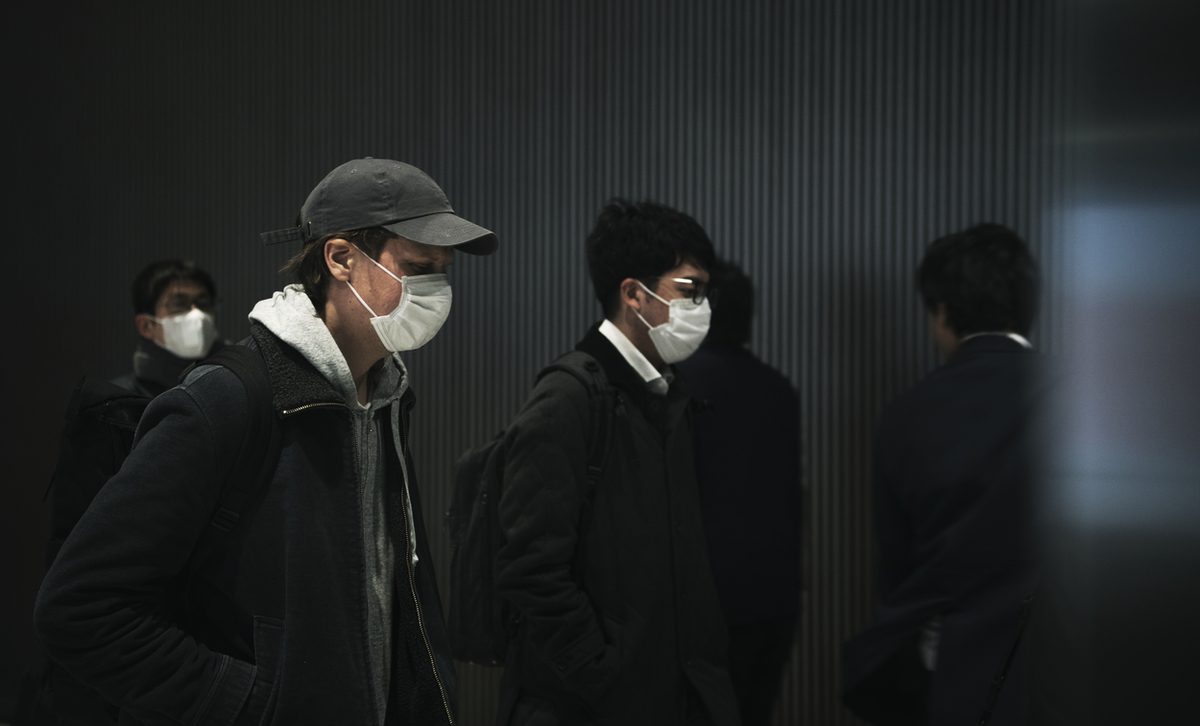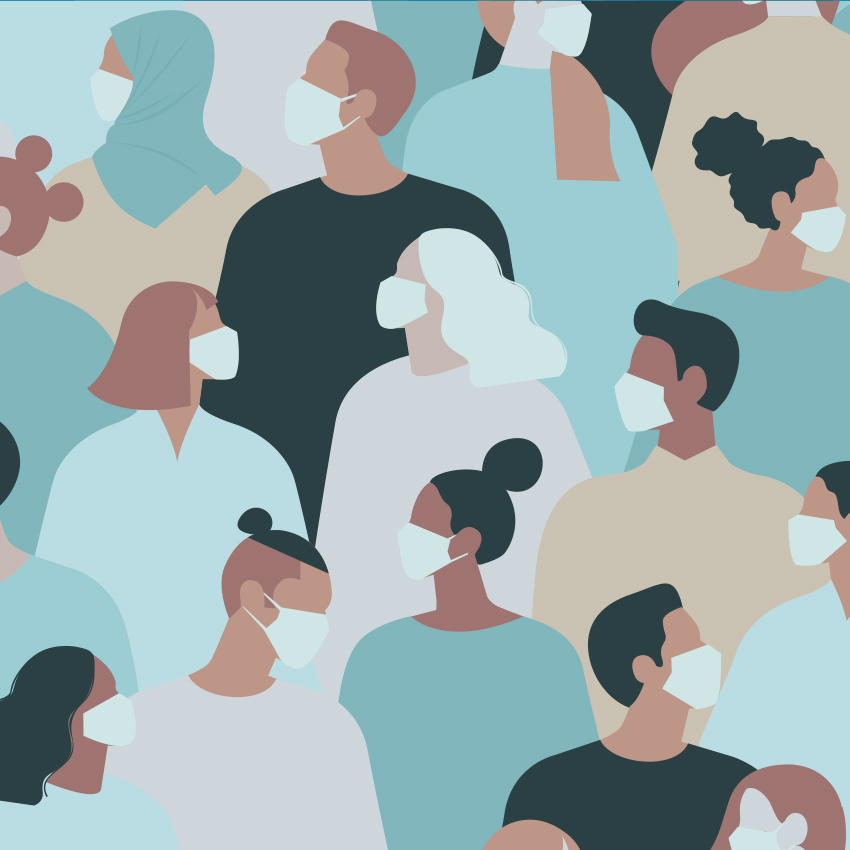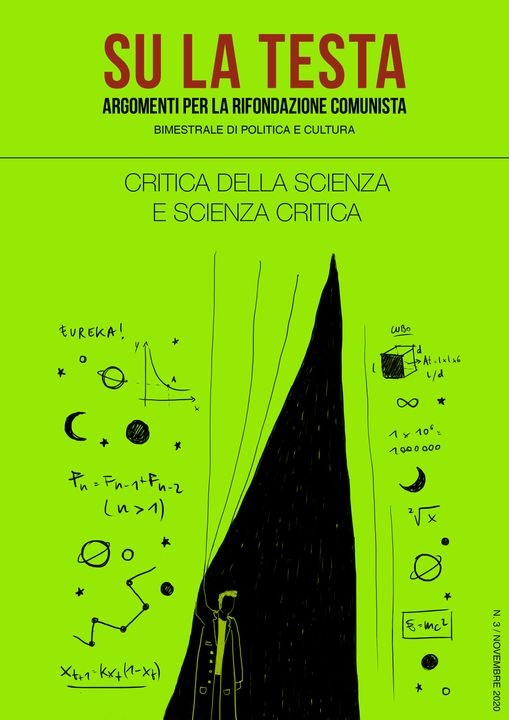L’odio pandemico come conseguenza del COVID
Il Covid-19 ha avuto e sta avendo ancora sulle nostre vite un impatto enorme: non solo per la costante paura di contrarre la malattia in cui viviamo, ma anche perché il virus ha completamente stravolto il nostro mondo: ha rallentato l’economia, cambiato le nostre relazioni sociali e trasformato il nostro modo di lavorare. Tutti hanno accusato l’impatto della pandemia e alcune categorie più di altre. I migranti irregolari, per esempio, sono più vulnerabili al Covid e ai suoi effetti: non solo perché più esposti al virus a causa delle condizioni di vita e di quelle lavorative cui spesso fanno fronte, dai centri d’accoglienza alle frontiere fino agli hub nei quali non sono garantite misure di sicurezza adeguate e in cui spesso mancano condizioni igieniche basilari, ma è difficile che sia garantito loro anche una vera assistenza sanitaria e una corretta informazione mai tradotta in altre lingue diverse dall’italiano e dall’inglese.
A questo si aggiunge il fatto che per evitare l’espandersi del virus gli Stati hanno deciso, nei momenti di picco della pandemica, di chiudere le frontiere e gli uffici addetti alle richieste d’asilo, rendendo così quasi impossibile, per i migranti irregolari, regolarizzarsi. C’è però una quarta conseguenza del Covid, nuova, ma non del tutto inaspettata che va analizzata quando si parla di migranti irregolari: l’odio pandemico. La crisi sanitaria, economica e sociale generata dal Covid-10 trova nei migranti irregolari, infatti, un ideale capro espiatorio: spesso vengono considerati come portatori di virus ma anche come privilegiati, trattati a volte meglio degli stessi cittadini italiani.
La situazione trova terreno fertile proprio nella crisi sanitaria ed economica in corso che fa deflagrare le tensioni sociali. Le persone rese insicure e timorose dalla portata mondiale dell’epidemia cercano a tutti i costi un colpevole, a volte più di uno. Già dall’inizio della pandemia, infatti, le persone hanno cominciato a scagliarsi verso i migranti, percepiti come untori; ma anche verso il governo, che da una parte non stava facendo il massimo per contenere il virus e allo stesso tempo si preoccupava troppo della malattia, limitando le libertà individuali; e verso chi lavorava mentre altri perdevano il lavoro. La retorica del “noi contro di loro” è stata accompagnata da atteggiamenti xenofobi e razzisti rafforzati da un’ondata di fake news circa l’accoglienza dei migranti.
A giocare un ruolo essenziale nella loro stigmatizzazione alcuni social media oltre ai media tradizionali. Lo certifica un rapporto di Amnesty International Italia da cui si evince che il 7% dei post e dei commenti online su Facebook o via Twitter possono essere etichettati come discorsi d’odio contro i migranti irregolari, percepiti, appunto, come detto in precedenza, come favoriti, protetti e assistiti molto più dei cittadini italiani stessi. Nel mirino di alcuni di questi post, infatti, le diverse restrizioni cui sarebbero stati sottoposti i migranti irregolari come, per esempio, il non indossare la mascherina. A trapelare in questi commenti online, inoltre, anche l’insofferenza per il governo italiano che spende per loro importanti fondi nazionali ed europei invece di aiutare i cittadini italiani. Ecco alcuni esempi tratti da “Il Barometro dell’Odio” di Amnesty International Italia.
“1.700.000 criminali clandestini con malattie di Sars Covid Aids Tubercolosi e soprattutto libertà di rapinare spacciare stuprare deturpare. Maledetto GOVERNO CIALTRONE”“Basta sbarchi ci infettano tutti lo volete capire???”“Mi raccomando eh i soldi dell’inchiappettata del recovery found usateli tutti per questa marmaglia anziché usarli quantomeno per noi e indebitatevi. Idioti”.
Le fake news, dunque, hanno avuto anche in questo caso un ruolo importante. Dai commenti emerge infatti la convinzione che non solo i migranti irregolari avrebbero portato il Covid nel Bel Paese ma sarebbero anche pronti a commettere ogni tipo di crimine sostenuti da un governo che userà tutti i soldi che l’Unione Europea erogherà con il Recovery Fund per assistere questi migranti-criminali. Continuando con l’analisi, anche i media più tradizionali hanno contribuito alla circolazione della disinformazione: secondo Carta di Roma, il 13% dei titoli presenti sui giornali italiani e l’11% dei servizi ai Tg nazionali hanno collegato negativamente i migranti ed il virus usando toni allarmistici e gravi. Il Giornale del 20 maggio 2020 riportava questa informazione:
Se da una parte è vero che il post Covid può aumentare i motivi per i quali le persone decidono di abbandonare il proprio paese e anche se il titolo non dipinge espressamente i migranti come portatori di virus, dall’altra è anche vero che titoli come questi danno al collegamento tra migranti irregolari e virus un senso negativo. Infatti, il titolo de Il Giornale considera il nuovo flusso di migranti non solo come un rischio, ma anche come qualcosa di cui il governo italiano dovrebbe avere paura. Come nei post e nei commenti online prima menzionati, anche in questo titolo i migranti vengono considerati come un problema da risolvere, come persone di cui avere paura e da cui essere protett*.
Anche qui, Libero Quotidiano collega negativamente gli stranieri ed il virus. Da questo titolo infatti sembrerebbe che tutt* stranier* stiano mettendo a rischio la popolazione italiana, come se chiunque venisse da fuori, come i migranti, fosse colpevole dei nuovi focolai di Covid-19.
Un altro esempio esemplificativo di questa tendenza a stigmatizzare i migranti e a diffondere fake news sul COVID-19 è il seguente titolo, sempre da Libero Quotidiano:
Analizzandolo è possibile non solo notare come la testata immediatamente colleghi i migranti con la nuova variante Omicron – rappresentando ancora una volta che fugge dal proprio paese come portatore del virus – ma anche come il giornale accusa pesantemente il governo italiano senza il minimo dato quantitativo o qualitativo. Infatti, in tutto l’articolo, si suppone che l’Italia stia lasciando entrare i migranti irregolari di proposito data la decisione di bloccare solo i voli dall’Africa e non gli arrivi irregolari via mare. Il modo in cui i social media ed i media tradizionali, dunque, dipingono i migranti può avere un impatto negativo sulla vita di queste persone mentre al contrario è essenziale condividere un’informazione veritiera ed esatta. Solo evitando le fake news e utilizzando una narrativa corretta è possibile lavorare contro i discorsi d’odio ed evitare quel cambiamento culturale che istiga ad azioni concrete ed aggressioni verso le categorie di persone più vulnerabili come i migranti irregolari ed i rifugiati.
In Italia, il nesso negativo tra migranti e Covid-19 accompagnato dalla diffusione di fake news, sta aiutando i partiti di estrema destra e populisti aumentando I loro elettori. Si tratta infatti di partiti che hanno sempre fatto della difesa degli italiani dagli “stranieri” un punto di forza del loro programma e che adesso, più che mai, si ergono a paladini della Patria contro i migranti che, stando appunto ai post, ai commenti online e ad alcune testate giornalistiche nazionali, diffondo il Covid, commettono violenze e crimini, e vengono anche aiutati dal governo italiano. Una tendenza a fomentare l’odio questa che presumibilmente potrebbe peggiorare con la nuova variante Omicron, proveniente dal Sud Africa: è molto probabile, infatti, che questi partiti useranno l’origine del virus per rafforzare la loro richiesta di chiudere ulteriormente le frontiere.
Concludendo, da una parte il Covid-19 ci ha mostrato che siamo tutti uguali difronte ad una pandemia globale, dall’altra ci ha fatto vedere quanto le conseguenze del virus stesso abbiano pesato sulle persone in maniera differente. In questo contesto i migranti si sono rivelati una categoria tra le più vulnerabili, sia alla malattia che alle sue conseguenze dirette ed indirette mancando infatti di tutte quelle possibilità offerte alle persone residenti regolarmente in un paese. Per esempio, solo in alcuni paesi, UK, Francia, Spagna e Paesi Bassi, i migranti irregolari possono avere libero accesso al vaccino. Ricordiamo, poi, che nei momenti più duri la chiusura delle frontiere e degli uffici addetti alle domande d’asilo ha reso i migranti più vulnerabili arrestando non solo i programmi di reinsediamento in altri paesi ma anche i ritorni volontari al proprio. A tutte queste sfide, si aggiunge per i migranti irregolari, anche un’altra conseguenza indiretta del Covid, l’odio pandemico.
La lotta contro l’hate speech non abbraccia solo i social network ed i media tradizionali, ma anche individui ed istituzioni. Serve dunque proteggere i migranti irregolari dall’odio pandemico, in Italia ma anche nel resto del mondo, ed è per questo necessario che i governi si impegnino insieme per combattere stereotipi, pregiudizi e xenofobia. Secondo le raccomandazioni di Amnesty International Italia, infatti, i governi dovrebbero aumentare la consapevolezza dell’opinione pubblica su come sradicare gli stereotipi ed i pregiudizi promuovendo programmi educativi e politici che abbiano l’obiettivo di responsabilizzare i cittadini sull’utilizzo di internet.
Per quanto riguarda i media, invece, le raccomandazioni variano: i social media dovrebbero implementare un sistema di monitoraggio che potrebbe includere, per esempio, uno staff ad hoc incaricato di cancellare pagine, post o commenti considerati hate speech; potrebbero creare poi dei reports periodici relativi proprio a quanti discorsi d’odio gli operatori si sono trovati a cancellare; e potrebbero creare delle linee guida su come scrivere un post senza utilizzare parole d’odio. I media tradizionali, invece, dovrebbero evitare di utilizzare toni allarmistici e smetterla di collegare negativamente il virus ed I migranti irregolari. Dovrebbero poi attenersi ai principi ed ai valori emanati dalla Carta di Roma, il Protocollo deontologico riguardante richiedenti asilo, rifugiati, vittime della tratta e migranti dei giornalisti italiani. Per proteggere i migranti dall’odio pandemico, infine, è necessario che le persone riescano a riconoscere una fake news. Ma qui il discorso si allarga alla educazione: ci si potrà arrivare dunque solo se verranno forniti loro i giusti strumenti educativi e tecnici. Solo la vera conoscenza e comprensione dei fatti può prevenire la creazione di sentimenti d’odio e da tutte le sue conseguenze.
VERSIONE INGLESE:
How covid-19 affected undocumented migrants: the pandemic hate as the fourth COVID-19’s consequence
Table of contents
2.1 Living and working conditions:
2.2 Healthcare access and the lack of information
2.3 Closure of the borders
3. The pandemic hate: how COVID-19 and undocumented migrants are linked in the media – the case study of Italians’ media
4. Reflections and conclusions
References Amnesty International Italy, 2021, “Barometro dell’odio”, Amnesty International Italy, viewed 4th December 2021, viewed 4th December 2021, https://d21zrvtkxtd6ae.cloudfront.net/public/uploads/2021/04/Amnesty-barometro-odio-2021.pdf Arfaat, M., 2020, “Rohingya refugees need a coronavirus lifeline, not an internet ban”, The New Humanitarian, viewed 4th December 2021, https://www.thenewhumanitarian.org/opinion/first-person/2020/03/24/coronavirus-rohingya-refugees-internet-ban-misinformation
1.Introduction
Covid-19 has had – and currently is having – a huge impact on our lives not only because we started living in the constant fear of contracting the virus, but also because it has completely changed our lives: it has slowed down economy and has changed our attitude towards social interactions, education and work (Calbi, M., et al., 2021). Everybody has been affected by COVID-19, however, some categories more than others (Guadagno, L., 2020). Undocumented migrants, for instance, are more vulnerable to the virus and to all its consequences for several reasons (Guadagno, L., 2020). In this essay, by analyzing relevant literature, I am going to give a general overview on why undocumented migrants are more vulnerable to COVID-19. This overview does not analyze specific countries or continents, but it gives general information on why and in which spheres undocumented migrants’ lives worsened due to COVID-19 all over the world. Then, I will focus my research on how undocumented migrants’ lives have been made more difficult by social and traditional media narratives which have often proposed a negative representation of the link between COVID-19 and undocumented migrants increasing, feelings of hate towards them, in Italy during the pandemic. I will then conclude with some reflections and recommendations.
2. Which impacts COVID-19 had on undocumented migrants: a general overview
Our world is characterized by local and international movements, indeed today people are free to move between different countries and for different reasons such as work, education, personal issues or tourism (Eurostat, 2020). Individuals are often obliged to move and to leave their country of origin becoming refugees (BBC). These voluntary or forced movements were not the cause of COVID-19 pandemic (Banulescu-Bogdan, N. et al., 2020), but they were and currently are strictly linked to it (Guadagno, L., 2020). Indeed, COVID-19 became a global pandemic because it travelled and still travels with humans showing us the inefficiency of borders and walls built for protecting States (Carlà, A., 2020).
If it is true, on the one hand, that COVID-19 could be contracted by everybody without considering the socio-economic status of a person, on the other hand it is also true that there are some categories, such as undocumented migrants, which are more vulnerable to the virus and to its direct and indirect consequences (Guadagno, L., 2020). Indeed, undocumented migrants not only are more exposed to COVID-19 due to their living and working conditions, but they have difficulties in receiving healthcare assistance and information just because of their status (Guadagno, L., 2020). In addition, it is necessary to consider that in order to avoid the spread of the virus, borders have been closed as well as asylum offices where migrants could ask for international protection making it almost impossible for them to get a permit of stay (Guadagno, L., 2020). To all these challenges, we need to add one more issue: the pandemic hate (Amnesty International, 2021). Health, social and economic crisis originated after COVID-19 need a scapegoat often found in undocumented migrants and refugees who are considered as virus bearers (Amnesty International, 2021).
2.1 Living and working conditions:
Undocumented migrants often live in degrading conditions (Guadagno, L., 202). Refugee camps, transit sites and reception centers are often over overcrowded (Guadagno, L., 2020), which makes it impossible to keep social distancing and to respect self-isolation (Guadagno, L., 2020). For instance, Lampedusa’s hotspot has an official capacity of 192 places, however, it always hosts on average over a thousand of people during the summer period (ASGI, 2021). In these places the situation is also made worse by terrible hygienic conditions, and they often have no water or soap, fundamental allies against COVID-19 (Frelik, B., 2020). In addition, for undocumented migrants in refugee camps, hotspot or transit sites, healthcare assistance cannot be taken for granted, indeed, they are not equipped for systematic screening and tracing and therefore the spread of diseases or illnesses as COVID-19 is very common (Guadagno, L., 2020). The lockdown, such as the one imposed to migrants in Lesbo’s Island during the pandemic, worsened the situation because it forced undocumented migrants to remain in places characterized by horrible sanitary conditions without any chance to have access to basic services outside the camp, transit sites or reception centers (Spinney, L., 2020). In relation to work conditions, it is important to highlight two important issues. First of all, undocumented migrants do not have permit of stay and therefore they can only accede to undeclared job positions in field such as logistics and deliveries, personal care and cleaning services (OECD, n.d.). These types of jobs, during a global pandemic, are particularly risky since they cannot be done from home, and because they foresee physical proximity with clients and co-workers (Gelatt, J., 2020). Second of all, undocumented migrants are excluded from programmes that States put in place for helping other workers (United Nations Network on Migration, n.d.). Indeed, undocumented migrants are not entitled of support packages, guaranteed income, unemployment benefits, paid sick leave or even days off (Gelatt, J., 2020).
2.2 Healthcare access and the lack of information
In relation to healthcare assistance, migrants often do not have the same rights than citizens and this includes also COVID-19 treatments and vaccines (Guadagno, L., 2020). In addition, they fear to be reported by healthcare providers to the police due to their illegal conditions, this leads them to not attend screening, testing, contact tracing or not to ask for healthcare assistance even in presence of COVID-19 symptoms (Guadagno, L., 2020). Moreover, lack of translated information about healthcare system and about COVID-19 good practices (Xuanmin, L., 2021) and migrants’ difficulty to have access to information channels may not help (Arfaat, M., 2020). Consequently, undocumented migrants could not know how to receive assistance or what to do in case of COVID-19 symptoms or close contact and this could lead them to put at risk themselves and their community’s health by adopting incorrect behavior or habits (Arfaat, M., 2020).
2.3 Closure of the borders
Also, when it comes to the closure of the borders it is necessary to consider different important factors (Guadagno, L., 2020). First of all, due to the pandemic, States decided to increase controls at the borders in order to avoid undocumented migrants to cross them and refused to grant a safe port to rescue vessels (Guadagno, L., 2020). Countries claimed that this stricter regime was put in place in order to avoid the spreading of COVID-19 but in this way, they obliged – and are obliging – migrants to remain at the borders or to quarantine on board of those rescue vessels, in poor health conditions that have already been analyzed, which could facilitate the virus’s circulation (Guadagno, L., 2020). Secondly, due to COVID-19 a high number of offices and services related to asylum requests have been closed (Guadagno, L., 2020). These closures not only make almost impossible for undocumented migrants to ask for asylum and to become documented, but they also make it difficult to renew a permit of stay of all those migrants who were documented before COVID-19 (Guadagno, L., 2020). As a consequence, migrants are more vulnerable to arrest and detention in overcrowded reception centers or prisons where the risk of contracting the virus are higher, as already analyzed (Guadagno, L., 2020). Thirdly, due to travel restrictions also resettlement programmes carried on by UNHCR, and voluntarily or forced repatriation programmes have been stopped obliging both documented and undocumented migrants to remain in refugee camps, reception centers, transit sites or in precarious accommodations. (Guadagno, L., 2020).
3. The pandemic hate: how COVID-19 and undocumented migrants are linked in the media – the case study of Italians’ media
Due to health and economic crisis generated by COVID-19 pandemic, social tensions increased all over the world: people started looking for a guilty party which could be identified in more than one individual (Amnesty International Italy, 2021). Indeed, since the begging of the pandemic people started inveighing towards those who in their opinion were considered COVID-19 spreaders; those who were not making their best for containing the virus; those who were too much worried about it or not worried enough, or those who limited freedoms, or were still working while other had lost their job, or those who had too much privileges and also against those people who have been involved in the origin of the pandemic itself (Amnesty International Italy, 2021). The “us against them” conception has been strengthened through xenophobic and racist behaviors especially against undocumented migrants and through fake news related to them (Amnesty International Italy, 2020). During the peak of COVID-19 pandemic, in the stigmatization of migrants, social and traditional media played an important role.
It is extremely difficult to define social media because there is not only one type of social media, there are different forms of them such us the most common one – Facebook and Twitter – but also blogs, websites, video platforms and instant messaging applications (University of South Florida, n.d.). Through the internet, these social media created a new form of communication, indeed, social media platforms allow everybody to share and create news and information (University of South Florida, n.d.). If on the one hand it could have some benefits such as the circulation of more information, on the other had it could generate real problems such as the hate speech (Amnesty International Italy, 2021). It is possible to define traditional media, instead, as any form of communication which already existed before the digital era, such as newspapers, books, television, radio and magazines (IGI Global, n.d.).
In relation to social media, in Italy, according to Amnesty International, 7% of online posts or comments on Facebook and Twitter can be labelled as hate speech against undocumented migrants and refugees who are perceived as more favored, protected and assisted than Italian citizens. Undocumented migrants and refugees are seen, first of all, as COVID-19 spreaders (Amnesty International Italy, 2021) and as those who are subjected to different COVID-19 restrictions, for instance, for a part of public opinion undocumented migrants and refugees can avoid wearing a mask (Amnesty International Italy, 2021). They are also considered as those towards whom the Italian Government diverts significant amount of public funds (Carta di Roma, 2020). For a complete understanding of how COVID-19 and undocumented migrants are linked in the social media I will cite some examples.
“1.700.000 illegal criminals with diseases such as COVID-19, HIV and Tuberculosis. These criminals are free to steal, to rape, to deal drugs and to spoil. MISERABLE GOVERNMENT” (Amnesty International Italy, 2021, p.26);
“stop migrants’ arrivals, they are going to infect us all! Why don’t you understand?” (Amnesty International Italy, 2021, p.26);
“Let’s use all money coming from the recovery fund for this rabble instead that for Italian citizens. Let’s get Italy into debts! Idiots!” (Amnesty International Italy, 2021, p.26).
As it is possible to observe, in the stigmatization of undocumented migrants and refugees, also fake news spread has had an important role (IOM, 2020). Indeed, according to these online comments not only undocumented migrants bring COVID-19 and other diseases, but they are also criminals ready to commit all type of crimes and the Italian Government will use all the money coming from the European Union for them (Amnesty International Italy, 2021).
However, in addition to social media, also traditional Italian information tools such as newscasts and newspapers often contributed to the circulation of misinformation and to the increase of hate speech against undocumented migrants: 13% of Italian newspaper’s headlines and 11% of newscasts’ reports, in 2020, used alarmistic tones linking COVID-19 and undocumented migrants and giving to this link a negative meaning (Carta di Roma, 2020). It possible to observe how Italian newspaper link the virus and undocumented migrants in the following headlines.
Here the translation of the headline: “Covid, a dossier is scaring Italy: 650 thousand of migrants are ready to leave – UN’s document on human trafficking. Post-covid risks: new migrants’ flow especially to Italy” (De Lorenzo, G., & Scognamiglio, R., 2020).
If on the one hand it is true that the post-COVID-19 effects could increase factors for which people decide to flee their countries (Dieh, S.A., 2021) and even if the headline does not explicitly claim that migrants bring the virus, it is also true, on the other hand, that titles like this link undocumented migrants and COVID-19 in a negative sense. Indeed, Il Giornale’s headline considers new migrants’ flows not only as a risk but also as something that should scare the Italian Government especially after COVID-19 pandemic. As in online posts and comments already mentioned, also in this headline migrants are considered as a problem to solve, as people to be scared of and to be protected from.
“New COVID-19 positives, almost all of them are foreigners – The new COVID-19 outbreaks occur from foreigners recently came back to Italy or from Italians coming back from abroad. Local cases are decreasing […]” (Carta di Roma, 2021).
As in Il Giornale, also in this headline Libero Quotidiano gives to the link between COVID-19 and foreigners a negative meaning. Indeed, from this title it seems as if foreigners are putting at risks the Italian population, as if people arriving from abroad, such as migrants, are guilty of the new COVID-19’s cases.
Explanatory of newspapers’ leanings to stigmatize migrants and to spread fake news when talking about COVID-19, is this 2021 headline always from Libero Quotidiano:
“Is Italian government prohibiting flying from some African’s zones but favoring migrants’ arrivals to Italy? The African variant overwhelms Luciana Lamorgese” (Gonzato, A., 2021).
Analyzing this headline, it is possible to observe not only how Libero Quotidiano immediately linked migrants with Omicron, the new COVID-19 variant, but also how the newspaper states a strong sentence against the Italian Government without supporting it with any data. Indeed, in the whole article, it supposes that the Italian Government is letting irregular migrants entering to Italy on purpose since it only blocked the legal arrivals by plane, while arrivals through the Mediterranean route are continuing. As already analyzed, migrants are perceived as more favored, protected and assisted than Italian citizens (Gonzato, A., 2021). In addition, by saying that Italian Government is not doing its best for stopping the new virus’ variant, Libero Quotidiano is directly linking Omicron and undocumented migrants portraying them, once again, as possible COVID-19 spreaders.
After the analysis of online posts and comments, and after having analyzed also newspapers’ headlines, it is clearer that how social and traditional media link COVID-19 and undocumented migrants could have a negative impact on their’ lives, and that informational tools such as social platforms, newscasters and newspapers have an extremely important role which is the one of sharing correct and true information (American Press Institute, 2021). Only avoiding fake news through a correct narrative is possible to avoid that the hate generated after the economic and social COVID-19 crisis – and spread through social and traditional media – could lead to a cultural change which can be translated into concrete actions and aggressions in real life towards the most vulnerable people, such as undocumented migrants (Amnesty International Italy, 2021).
4. Reflections and conclusions
In conclusion, on the one hand COVID-19 showed us how much we are all equal before a global pandemic, and on the other hand how much it hit persons in different ways underlying privileges that only a small percentage of the population has (Guadagno, L., 2020). Indeed, there are some groups, such as undocumented migrants, who have been – and who currently are – more vulnerable to COVID-19 and to its direct and indirect consequences (Guadagno, L., 2020). Undocumented migrants not only are more exposed to the virus due to their living and working conditions, but they also lack the same possibilities normal citizens have when it comes to healthcare assistance and information (Guadagno, L., 2020). As an example, is enough to highlight that only in some countries such as Great Britain, France, Spain and The Netherlands, undocumented migrants could have access to COVID-19 vaccinations (PICUM, 2021). When analyzing the vulnerability of undocumented migrants to COVID-19, it is necessary to add the fact that the pandemic obliged States to close borders and asylum offices, and to stop resettlement or repatriations making impossible for undocumented migrants to acquire a permit of stay and therefore to have access to some of their fundamental rights (Guadagno, L., 2020). To all these difficulties undocumented migrants are facing during this global pandemic, there is a fourth COVID-19’s consequence which is mandatory to add: the pandemic hate (Amnesty International Italy, 2021).
Indeed, economic and social crisis originated after the pandemic has led some people to find a responsible, a guilty party which has been often identified in undocumented migrants (Amnesty International Italy, 2021). Since 2020, indeed, both in social and in traditional media, hate speech towards migrants and fake news linking COVID-19 to them have been on the agenda, especially in Italy (Amnesty International Italy, 2021). In this Country, the negative link between COVID-19 and undocumented migrants and the fake news spread by both social media and newspapers, are helping extreme right-wing and populist parties to increase their electors (De Ghantuz Gubbe, G., 2021). Indeed, some recent surveys stated that Lega an Fratelli di Italia, the two main Italian right-wing parties, could win the next Italian Political election (De Ghantuz Gubbe, G., 2021). This is because extreme right-wing Italian parties have always defended Italians from foreigners (De Ghantuz Gubbe, G., 2021), and now more than ever they are defending Italians from migrants who, according to online posts and traditional newspapers’ headlines above analyzed, bring COVID-19 and towards whom the Italian Government is willing to spend a huge amount of money (Amnesty International Italy, 2021).
Considering the right-wing parties’ leanings to exploit fake news on pandemic and migration, I think that the arrival of the new COVID-19 variant coming from South Africa will make the pandemic hate and the stigmatization of undocumented migrants even worse: in my opinion it is likely possible that these parties will use the origin of virus for strengthening their demand of closing Italian borders even more. The fight against hate speech involves not only social and traditional media but also individuals and institutions (Amnesty International Italy, 2021). Indeed, in order to protect undocumented migrants from pandemic hate in Italy, but also in other parts of the world, it is necessary that governments and media engage themselves together in the fighting against stereotypes, prejudices and xenophobia (Amnesty International Italy, 2021). Governments should raise public awareness on how to uproot stereotypes and prejudices and should promote educational and political programmes which aim to hold responsible citizens for their use of internet and social media (Amnesty International Italy 2021).
For what concerns media, recommendations vary according to social or traditional media (Amnesty International Italy, 2021). Social media, for contrasting hate speech towards migrants should implement a monitoring system which could include, for example, staff in charge of deleting hate speech, periodical reports on how many comments or pages have been deleted for being considerate hate speech, guidelines on how make a post without using words of hate (Amnesty International Italy, 2021). Traditional media, instead, should avoid using alarmistic tones and giving a negative meaning to the link between COVID-19 pandemic and undocumented migrants both for newspapers’ articles or headlines and for newscasts’ reports (Amnesty International Italy 2021). For protecting migrants from hate speech, it is also essential to teach people how to recognize a fake news by giving them right educational and technological tools (Wendling, M., 2017). I firmly believe that only the real knowledge and understanding of facts could prevent people from sentiment of hate and from all its consequences.
References
Amnesty International Italy, 2021, “Barometro dell’odio”, Amnesty International Italy, viewed 4th December 2021, viewed 4th December 2021, https://d21zrvtkxtd6ae.cloudfront.net/public/uploads/2021/04/Amnesty-barometro-odio-2021.pdf
Arfaat, M., 2020, “Rohingya refugees need a coronavirus lifeline, not an internet ban”, The New Humanitarian, viewed 4th December 2021, https://www.thenewhumanitarian.org/opinion/first-person/2020/03/24/coronavirus-rohingya-refugees-internet-ban-misinformation
Association for Juridical Studies on Immigration (ASGI), 2021, “Country Report: conditions in receptions facilities”, Asylum Information Database – ECRE, viewed 6th December 2021, https://asylumineurope.org/reports/country/italy/reception-conditions/housing/conditions-reception-facilities/
BBC, n.d., “Causes and impacts relating to forced and voluntary migration”, BBC, viewed on 4th December 2021, https://www.bbc.co.uk/bitesize/guides/z8g334j/revision/3
Banulescu-Bogdan, N., M. Benton and S. Fratzke, 2020, “Coronavirus is spreading across borders, but it is not a migration problem”, Migration Policy Institute, viewed on 4th December 2021, https://www.migrationpolicy.org/news/coronavirus-not-a-migration-problem
Calbi, M., Langiullo, N., Ferroni, F., Montalti, M., Kolesnikov, A., Gallese, V., Umiltà., M.A., 2021, “The consequences of COVID‑19 on social interactions: an online study on face covering”, Scientific Reports, 11:2601, viewed 6th December 2021, https://www.nature.com/articles/s41598-021-81780-w.pdf
Carlà, A., 2020, Confini in tempo di Corona virus, Eurac research – Science Blogs, blog, viewed 13th December 2021, https://www.eurac.edu/en/blogs/covid-19/confini-in-tempo-di-corona-virus
Carta di Roma, 2021, “Notizie di transito – presentazione VIII rapporto della Carta di Roma”, Carta di Roma, viewed 12th December 2021, https://www.cartadiroma.org/wp-content/uploads/2020/12/Notizie-di-transito.pdf
Das, R., & Ahmed, W., 2020, Despite concerns, COVID-19 shows how social media has become an essential tool in the democratisation of knowledge, European Politics and Policy, blog, viewed 12th December 2021, https://blogs.lse.ac.uk/impactofsocialsciences/2020/06/05/despite-concerns-covid-19-shows-how-social-media-has-become-an-essential-tool-in-the-democratisation-of-knowledge/
Dean, W., 2021, “What is the purpose of journalism?”, American Press Institute, viewed 13th December 2021, https://www.americanpressinstitute.org/journalism-essentials/what-is-journalism/purpose-journalism/
De Ghantuz Cubbe, G., 2021, How the Italian radical right has framed immigration during the pandemic, European Politics and Policy, blog, viewed 12th December 2021, https://blogs.lse.ac.uk/europpblog/2021/09/06/how-the-italian-radical-right-has-framed-immigration-during-the-pandemic/
De Lorenzo, G., & Scognamiglio, R., 2020, “Covid, un dossier spaventa l’Italia: 650mila migranti pronti a partire”, Il Giornale, viewed 12th December 2021, https://www.ilgiornale.it/news/cronache/documento-spaventa-litalia-650mia-migranti-pronti-partire-1866318.html
Dieh, S.A., 2021, “Is Europe ready for a post-COVID migration wave?”, Informigrants, viewed 12th December 2021, https://www.infomigrants.net/en/post/35629/is-europe-ready-for-a-postcovid-migration-wave
Eurostat, 2020, “People on the move – statistics on mobility in Europe, 2020 edition”, Eurostat, viewed on 6th December 2021, https://ec.europa.eu/eurostat/cache/digpub/eumove/
Frelick, B., 2020, “Soap: Refugees Need it Too – Basic Hygiene Not Only for Public Health But a Human Right”, Human Rights Watch, viewed 6th December 2021, https://www.hrw.org/news/2020/04/07/soap-refugees-need-it-too
Gelatt, J., 2020, “Immigrant Workers: Vital to the U.S. COVID-19 Response, Disproportionately Vulnerable”, Migration Policy Institute, viewed 6th December 2021, https://www.migrationpolicy.org/research/immigrant-workers-us-covid-19-response
Gonzato, A., 2021, “Il governo chiude i voli ma agevola gli sbarchi? La variante africana travolge Luciana Lamorgese”, Libero Quotidiano, viewed 12th December 2021, https://www.liberoquotidiano.it/news/terra-promessa/29596367/variante-sudafricana-governo-chiude-voli-agevola-sbarchi-luciana-lamorgese.html
Guadagno, L., 2020, “Migrants and the COVID-19 pandemic: An initial analysis”, Migration Research Series, No. 60, International Organization for Migration, viewed 4th December 2021, https://publications.iom.int/system/files/pdf/mrs-60.pdf
IGI Global – Publisher of timely knowledge, n.d., “What is Traditional Media”, IGI Global, viewed 16th December, https://www.igi-global.com/dictionary/traditional-media/47688
IOM UN Migration, 2020, “COVID-19 Analytical Snapshot #19: Misinformation on migration & migrants – Understanding the migration & mobility implications of COVID-19”, IOM, viewed 10th December 2021, https://www.iom.int/sites/g/files/tmzbdl486/files/documents/covid-19_analytical_snapshot_19_-_misinformation.pdf
OECD, n.d., “Immigrants by sector”, OECD, viewed 6th December 2021, https://stats.oecd.org/Index.aspx?DataSetCode=DIOC_SECTOR
Spinney, J., 2020, “Fears of catastrophe as Greece puts migrant camps into lockdown”, The Guardian, viewed 6th December 2021, https://www.theguardian.com/global-development/2020/mar/21/fears-catastrophe-greece-migrant-camps-lockdown-coronavirus
PICUM, 2021, “NEW MAP on #COVID19 VACCINES & #UNDOCUMENTED PEOPLE”/Twitter, 4th February 2021, viewed 12th December 2021, https://twitter.com/PICUM_post/status/1357285435144298498/photo/1
United Nations Network on Migration – Working Better Together, n.d., “Working group on access to services”, United Nations Network on Migration, viewed 6th December 2021, https://unhabitat.org/sites/default/files/2020/06/final_network_wg_policy_brief_covid-19_and_access_to_services.pdf
University of South Florida, n.d., “Introduction to Social Media”, University Communication and Marketing, viewed 16th December 2021, https://www.usf.edu/ucm/marketing/intro-social-media.aspx
Wendling, M., 2017, “Solutions that can stop fake news spreading”, BBC News, viewed 14th December 2021, https://www.bbc.com/news/blogs-trending-38769996
Xuanmin, L., 2021, “Translation in the time of COVID-19”, Asia Pacific Translation and Intercultural Studies, 8:1, PP.1-3, https://doi.org/10.1080/23306343.2021.1903183
Alice Regis
11/2/2022 https://www.intersezionale.com
Sono Alice Regis, studentessa ed attivista per i diritti umani. Mi sono sempre occupata di attivismo con diverse ONG tra cui Greenpeace,Bridge to Better e Amici dei popoli. Attualmente sono la Referente Attivismo di Amnesty International Lazio e mi occupo di gestire gli attivisti sul territorio regionale










Lascia un Commento
Vuoi partecipare alla discussione?Sentitevi liberi di contribuire!